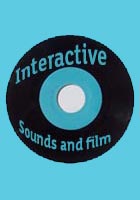Types of Noise
Here are some examples of noises which can be annoying and disturbing.
So what can be done? And what should you be doing to help minimise noise?
Neighbour Noise
We all hear noise from our neighbours from time to time - it is a part of everyday life and keeps our neighbourhoods vibrant. However, too much noise in the wrong place at the wrong time can cause friction between neighbours. This can be voices, impact noise from floors and doors, DIY and gardening activities, noisy domestic appliances..... Remember that no home is completely sound proof - and we all make noise sometimes.
If noise from your neighbours is disturbing you, approach them politely and explain the problem. They may well not realise the effect they are having. If you really feel this is inappropriate, you can contact your local noise officers at your council.
Find out more about dealing with neighbour noise.
Loud Music
There are many different musical tastes and we have increasingly powerful equipment for reproducing sound. Remember that your favourite tunes may not be to the taste of your neighbours. Make sure speakers are away from party walls and floors, and keep the volume reasonable - taking into account the time of day.
If you play a musical instrument and need to practise, consider carefully where and when. If you tell your neighbours that you will be making a noise, and agree what days and times will cause them least disturbance, you are less likely to have complaints.
Playing loud music at night (11pm - 7 am) can result in confiscation of your equipment or instruments, and fines.
Anti Social Behaviour
This is behaviour that disturbs others. If you are leaving a pub, bar, club, party or friends' house - be considerate - say your good byes quietly. Avoid shouting, slamming doors, revving car engines, or beeping horns - especially at night. Noise is generally only one element of anti-social behaviour - and there are now laws to deal with behaviour that is judged to be anti-social.
Alarms
Alarms going off accidentally can be extremely annoying - often waking up an entire neighbourhood. In London key holders must be registered for alarms. Legislation allows all local authorities in England and Wales to designate areas where premises with intruder alarms must register a key holder, who should be available if an alarm goes off accidentally.
If you have a car or intruder alarm, make sure it is properly fitted, reguarly maintained and has a cut out. Whether it is obligatory under law or not, registering a key holder for your premises with your local authority can save you aggravation and expense if your alarm goes off accidentally when you are out or away.
DIY
Home maintenance is essential, and home improvement a popular pastime. Much DIY or building work can be very noisy however, so consider your neighbours when you are carrying out work. Let them know if you plan to do anything that involves work on party walls or floors or that will be extremely noisy - eg floor sanding. It helps if you can agree a time for work when it will least disturb them. Avoid drilling and banging late at night and early in the morning.
If you are being disturbed by your neighbours, first approach them politely - they may well not realise they are causing a problem. Let them know when noisy work will disturb you least. If you suffer from persistent noise, and you either feel you cannot take the personnel approach, or it has not worked, contact your local environmental department who should investigate your complaint.
Barking Dogs
Dogs only bark if they are not happy. If dogs are barking persistently there is a reason for it. If you are disturbed by barking dogs - first approach the owners. If the dogs bark when they are left their owners may well not realise there is a problem. If this fails, or you are not happy about approaching the owners, your local environmental health department should be able to help.
If you have dogs that bark - help is available. A leaflet is available on the Defra website with advice on what you can do. Is your Dog Barking Too Much?
The trend towards hard and laminated flooring has been the cause of an increasing number of complaints about noise. If you are considering fitting hard flooring, you should carefully consider the potential impact on your neighbours - particularly if you live in a terraced house or flat. Make sure that it will not increase noise impact on your neighbours, and that any sound insulation fitted is effective. In many dwellings the fitting of hard flooring is prohibited by the lease.
If you suffer from noise from hard flooring, first approach your neighbours. Using rugs and removing shoes can reduce the impact noise on hard floors but will probably not completely solve the problem. If you live in a flat check the lease. If you do not own your home, take the matter up with your landlord. In some cases, where buildings have poor sound insulation, carpet may be the only solution!
Fireworks
As well as traditional celebrations, fireworks are increasingly used to mark occassions - including birthdays, sporting events, outdoor festivals.....
Fireworks are fun - but noisy fireworks can frighten people and animals. In 2004 regulations were brought in to manage nuisance noise caused by fireworks. It is an offence to let off fireworks after 11pm at night - with the exception of Bonfire Night, Diwali, New Year and Chinese New Year. If you must have your own fireworks - warn anyone nearby , especially if they have pets or livestock, young children or are elderly, and let them off at a reasonable time.
Further information about fireworks.




